Geekus Interruptus: A Novella about Geek Love by Mickey J. Corrigan
Marcy Margate has it all: she’s young, rich, and built like Barbie. She isn’t the brightest bulb in the chandelier, but the girl’s got sass and spunk to spare. Plus, she’s sizzling hot. When her marriage to a real live genius starts to dim and grow cool, however, she’s puzzled. What went wrong? Marcy loves her husband, even if Jess Margate is from the planet of the nerds. She decides to play it smart for a change. Using spyware and creative strategy, she plots to find out why her geek has been interruptus. Armed with miniature technology, Marcy plans to uncover the cause for the downtime in their love life. A modern romantic comedy of hot errors and hotter apologies, Geekus Interruptus is a story for our time. Because these days, nerds rule. And geeks have guilty pleasures too, some quite different than our own. What are the main themes of your book? Opposites do attract, and it’s not always a bad thing. He brings out the best in her and vice versa. Often, everybody wins. But it’s not so easy when you don’t speak geek and that’s his native tongue. This is the theme I wanted to explore in Geekus Interruptus. Who or what inspired your story? After reading Walter Isaacson’s biography of Steve Jobs, I had sexy geeks on the brain. Plus, I live with a young geek. I am struggling to learn the language. What do you like best and least about your primary characters? Marcy is plucky. She’s loyal. She cares. Passionately. But she’s kind of dumb. She’s nosy. And she needs a lot of attention. Did I mention her hormones are wacked? Jess is brilliant. He’s successful and rich. He works. Very hard. But he lives in his head, in his own special world. He doesn’t pay enough attention to his sexy wife. Did I mention he’s a total geek? How does your main character evolve? When she thinks her husband is having an extramarital affair, Marcy takes the situation into her own hands. She has to learn to use that brain of hers for more than shopping and seduction. She also has to re-evaluate her marriage. How much does she love this man? And when Jess is confronted with a situation he doesn’t understand, he must remember how much he loves his wife in order to resolve their considerable differences. Men and women need to get along so we can move the species forward. The good news? It can be done, folks. Couples do it every day. Plus, it can be fun! What’s the nicest thing anyone has said about your book? I love reviewers. Read this from Smardy Pants Book Blog: “This is by far my favorite Mickey J. Corrigan book. So far I’ve only read three of her books and she is HILARIOUS!! I know I will be highly entertained by her shenanigans…I’m not usually one to read stand-alone novellas, but if Mickey J. Corrigan writes it, I’m going to read...
Read MoreMoonless by Crystal Collier
MOONLESS is Jane Eyre meets Supernatural. Alexia’s nightmares become reality: a dead baron, red-eyed wraiths, and forbidden love with a man hunted by these creatures. After an attack close to home, Alexia realizes she cannot keep one foot in her old life and one in this new world. To protect her family she must either be sold into a loveless marriage, or escape with her beloved and risk becoming one of the Soulless. What are the main themes of your book? True love means sacrifice, and embrace who you are. Who or what inspired your story? It was actually a story dream, right off a Dickens reading binge, and suddenly I had this image in my head of a young woman who didn’t fit into her time period or circumstances. She was forward thinking and brave enough to break free from society’s expectations, inspired by a startling murder and a dazzling set of blue eyes. What do you like best about your primary characters? Alexia faces her fears. She recognizes her own naiveté from a lifetime of sheltering, but she isn’t afraid to step into the dark and embrace the possibilities. Kiren would give his very soul to protect those he associates with, and has sacrificed all for the sake of others. His compassion endears him to me. Bellezza is gung ho in her cause, even when it means breaking laws. Her determination gets me. Sarah knows how to laugh off the awful things in life. Miles loves deeper than anyone. He’s learned from a lifetime of patterning that to truly love someone, you have to put their happiness before your own. What are their worst peculiarities? Alexia’s unsure of her place in the world, and vacillating between the powers that govern her life. Kiren thinks he’s always right—because he knows way more than he should. Bellezza kills people. All the time. And loves it. Sarah’s a flirt. Miles is pretty much socially inept. How does your main character evolve? Alexia has always been sheltered and kind of ugly, but she’s okay with that. Belonging to a noble born family, that’s not exactly the most promising circumstances for a good match—which is pretty much her sole purpose in life—or so she’s been led to believe. The night she suddenly becomes stunning, she discovers she’s not only been living under a veil of deceit, but she has abilities that draw Soulless and eternal monsters to her. In order to protect herself and those she loves, she has to make some difficult choices, which I won’t spoil. Throughout the story, she matures into a strong young woman who understands her place in the world. What’s the principal message you want to send to your audience? The truest definition of love is being willing to sacrifice all for the sake of another person. What’s the nicest thing anyone has said about your book? I’ve heard so many nice words, but the best were probably “Brain Candy,” or when someone called Kiren a darker Mr....
Read MoreAuthor Spotlight: Julia Rose Grey
Always believing my upwardly slanted penmanship was an indication of some disease, I tried to correct it. I used a ruler under my pen; drew faint penciled lines; and even turned my paper 45O to the left. Nothing worked. I was stuck with thank you notes, addresses and signatures that were low on the left and traveled one-half inch uphill to the right. A nice lady administering a psychological test told me my slanted script indicated how hopeful I was about the future. She elaborated that I had a sense of responsibility for my own behavior and believed in myself. I was, she declared, an optimist. Too young and still mired in the murk left-over from childhood, I did not fully comprehend what she meant. Along the way, I learned to type so that my book reports and nonsensical short stories and poems were perpendicular to the top and bottom of the paper. In high school, my writing skills branched into parody and satire. Once I wrote a take-off of Poe’s poem The Raven in which I lamented having to do homework “evermore.” The teacher liked it for its witty twist. My parents weren’t delighted because they believed the parody indicated a flawed character – a preference of listening to my own drummer’s beat rather than conforming – a trait which remains intact to this day. In college, I was delighted with my ability to churn out term papers. With a few hours research and an afternoon of typing, I could produce a twenty-page paper. Oh the joy! No more necessity for scribbling blurry thoughts all night. Throughout all my childhood, teen years, and into adulthood, I seemed to never tire of the stories my grandmothers told me about their experiences. Although deceased for many years now, I cling to their tales as the Peanuts character Linus cleaves to his security blanket. Which brings me to today. My novels have three qualities: They are uplifting tales, loaded with humor, and steeped in yesteryear. In my first novel, Cry Before Supper, the Campbell family, parents, devoted grandmother and five children start each day with a song and, using happiness as their bond, protect the one child who suffers from a neurological condition that marks him as different. Then, in one swift stroke, irrevocable harm is inflicted upon them by a town local mired in his own bitterness. The family’s joy is shattered. Their future bleak. Except for that one ray of hope. The middle child, Annie, who has the endurance and willingness to provide for others, brings light to them once more. Her account of what happened defines the power of perseverance. My holiday novel, The Dream Catcher, is a whimsical tale about the diminutive Rupert Rumple, who is concerned about the gloom surrounding the town of Greeneville. Despite his many fears, he sets out on a journey to bring back the joy of making dreams come true. A third book is in progress. The current title is They Ran...
Read MoreCry Before Supper by Julia Rose Grey
It is the early 1960’s. The Campbell family moves from their Philadelphia row home to a larger house in a suburb where they believe they will have a better life. For a while, they do. The parents, devoted grandmother and five children start each day with a song. Bonded by their happiness, they protect the one child who suffers from an undiagnosed neurological condition from abuse and negativity. The family’s joy is their strength. Unfortunately, it is also the source of their demise. The Campbells’ cheerfulness entices a jealous neighbor — someone whom they help in his time of need — to inflict irrevocable harm upon them. Each of the family members is struck hard by this strategy none of them can fathom. The family’s future is shattered. In an instant, the happiness and closeness are gone forever. Most of the Campbells react in way that is uncharacteristic. One child does not. She realizes that family members need attention and, unwittingly, takes on the task of caring for them. The irony is, this child is the one who believes she has neither the perseverance nor the resilience to bear such a weight. The question is, will she, can she, in her own stumbling way, bring the family home once again. Author Interview What are the main themes of your book? The main theme is resilience in the face of daunting odds. The story centers on a close-knit family who experience an unspeakable tragedy. The middle child, the one with the least confidence, is the one who must struggle alone to mend the closeness that was shattered. Who or what inspired your story? My childhood inspired me to write. My grandmother was an extraordinary person who was widowed in 1932, without resources for providing for her two children. Somehow, she gave my mother both a bachelor’s and master’s degree and sent my uncle for a degree in engineering. She lived with us and I will always remember her strength and optimism. What do you like best about your primary characters? The way they protect the child with a neurological disorder that was not yet diagnosed in the early 1960s. What are their worst peculiarities? Bud is a prankster; Betsy is snotty; Annie lacks confidence and isn’t too bright; and Carolyn Rose (Crosey) tries to be naughty because she doesn’t mind the consequences and, in her view, it’s fun to pester Betsy. How does your main character evolve? Annie is the narrator. She’s a loveable child but has no faith in herself whatsoever. By the middle of the book, she is starting to figure out that she does have strength. In the end, she is has developed her own confidence. What’s the principal message you want to send to your audience? There’s no intended message. At least I didn’t write it with something I wanted the reader to discover. I wanted people to have a good read. What’s the nicest thing anyone has said about your book? Angella Graff, an accomplished...
Read MoreQueen of Deception by Trine Villemann
Queen of Deception is the first novel by Danish royal author Trine Villemann. It’s a dark and shocking tale which focuses on the death bed regrets of the Queen of a small anonymous northern European kingdom, as well as the self destructive escapades of the country’s Crown Prince Franz. Queen of Deception offers an unedifying glimpse of life behind the Palace walls, where the cancer stricken monarch, a victim of the most horrifying cruelty, has sacrificed her own happiness in order to fulfill her royal duty. Prince Franz is determined not to follow in his mother’s footsteps. Sensitive and weak Franz is a reluctant heir to the throne. After a miserable childhood, living in fear of his strict and violent father, Duke Alfonso, and ignored by his cold mother, Franz fights tooth and nail to avoid his royal responsibilities. He seeks solace in alcohol, drugs and casual sex, and alarms his minders by surrounding himself with a sometimes criminal entourage. Franz falls in love with a nurse, but his desire to marry her is thwarted by the Palace and he ends up succumbing to a highly ambitious foreign commoner called Vicki. In her final days, the Queen realises that the web of deception she has spun is about to undermine the very institution that she has sacrificed everything to protect. What are the main themes of your book? The main theme of my novel is trying to humanize the royals of today. We always see them on parade, smiling, waving, cutting ribbons and making speeches, but I am convinced that there is much more to a royal life than just that. We idolize princesses like The Duchess of Cambridge, the former Kate Middleton, and Crown Princess Mary of Denmark, to name a few, but what kind of life do these young women actually have? What kind of sacrifices do they have to make to fit their duty into their existence? Can Queens like Elizabeth II and Denmark’s Margrethe even allow themselves to be human? And who helps a Queen if her husband is abusive and violent? I wanted to create a story that explores the human being behind the royal handshake. Who or what inspired your story? I am a former Royal Correspondent for various magazines, newspapers and TV-stations and when you have that job you are, once in a while, allowed a glimpse of life behind Palace walls. Those rare glimpses got me thinking. What do you like best about your primary characters? Their humanity. At the end of the day when the Queen is lying on her death bed she is as human as you and me. The same goes for one of my other main characters, Crown Prince Franz. He is simply unable to adapt to his royal life, but wants freedom. His sensitivity, I think, is very endearing. What are their worst peculiarities? As a commoner it is perhaps difficult to comprehend why the Queen for so many years put up with her violent husband, Duke Alfonso....
Read MoreOne Sixth of a Gill by Jean Gill
‘A rare treat‘ – J.G. Harlond, author of ‘The Empress Emerald’ ‘An eclectic mix – quite unputdownable‘ – B.A. Morton, author of prize-winning crime novel ‘Mrs Jones’ Five-minute reads. Meet people you will never forget: the night photographer, the gynaecologist’s wife, the rescue dog. Dip into whatever suits your mood, from comedy to murders; from fantastic stories to blog posts, by way of love poetry. Fully illustrated by the author; Jean Gill’s original photographs are as thought-provoking as her writing. An out of body experience for adventurous readers. Or, of course, you can ’Live Safe’. Not for you the blind alley on a dark night, wolf-lope pacing you step for step as shadows flare on the walls. Purchase Link: Amazon Author Interview What are the main themes of your book? It’s a full collection of very varied shorts: fiction, poetry and non-fiction so each piece is different but certain themes do recur in my writing. Dogs (of course), photography, childhood, love and loss all feature, and I think the common element is emotion. I’d like readers to feel what they read and to think about it. Brain food for busy readers. Who or what inspired your story? ‘The Night Photographer’ arose from me reading a technical photography book on night photography that starts with advice on staying safe while risking the inevitable dangers of being out in the dark with an expensive camera and a tripod. That made me think about what kind of people night photographers are and then I was inside my character, much too easily! The funniest back-story is probably that behind ‘The Gynaecologist’s Wife’. I wrote the poem in my head while undergoing an appointment and to distract myself from what was going on, I started wondering what the specialist’s wife thought of his daily activities and how it affected their sex life. It’s a good job that doctor had no idea what I was thinking. What do you like best about your primary characters? They are quirky and, I hope, memorable. Lou, the rescue dog, is in a series of true stories. He’s a special dog and I think the way I feel about him shows in the writing. What are their worst peculiarities? I’d say ‘best’ peculiarities because that’s exactly what makes them interesting. They live on the edge and sometimes well beyond it. The night photographer says, ‘Trespass is my territory,’ and I think that’s true of many of the characters. How do your main characters evolve? Lou was in a shelter cage for nearly three years when I sprung him and his return to family life was very moving. One of my fictional characters is a middle-aged woman who discovers a somewhat innovatory method of improving her appearance – the twists in this story have been well-received. What’s the principal message you want to send to your audience? No message. Just an experience. What’s the nicest thing anyone has said about your book? First reactions are all so positive it’s hard to choose but this is the most recent....
Read More



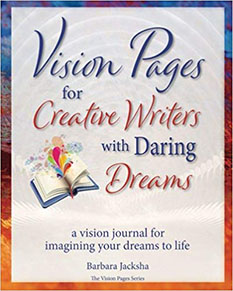
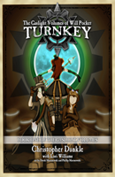
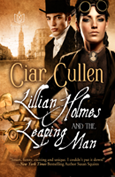
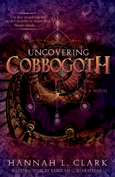
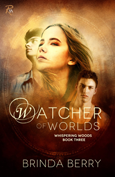
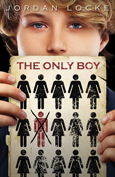
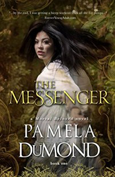
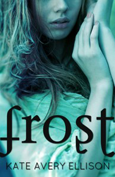
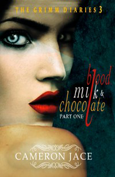
Follow Me